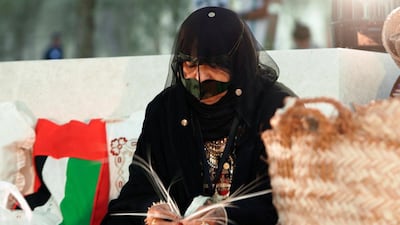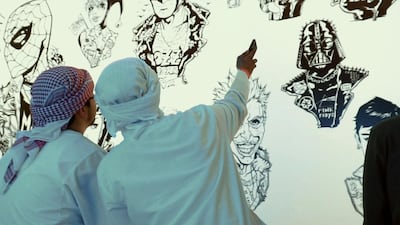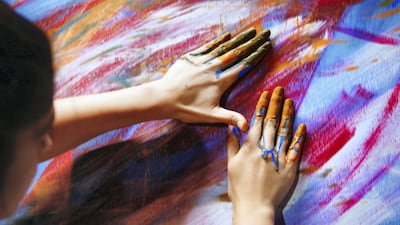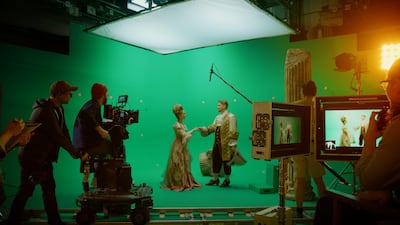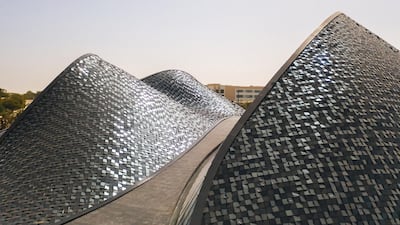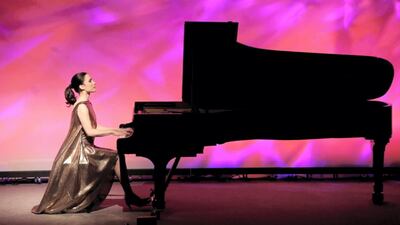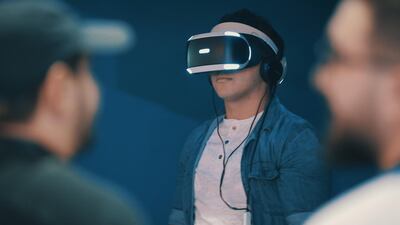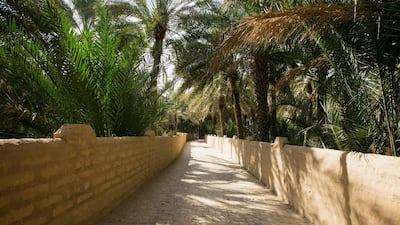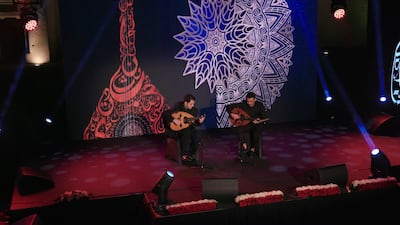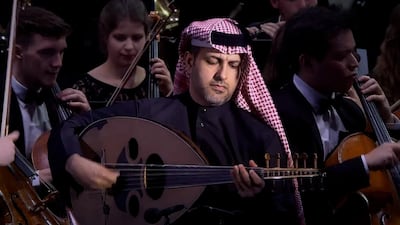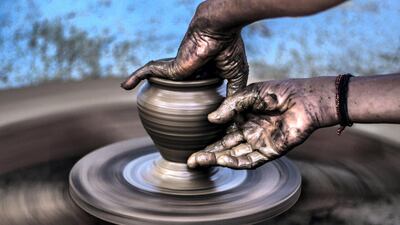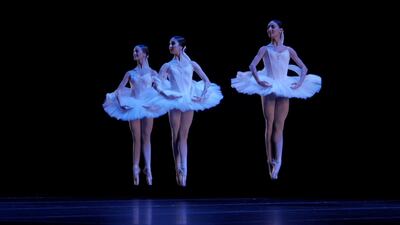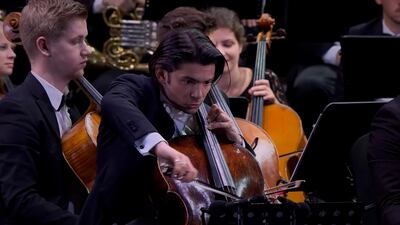Abu Dhabi plans to invest Dh22 billion ($6bn) over the next five years in its cultural and creative industries as it seeks to reduce its economic reliance on oil, create new jobs and attract talent.
After pledging Dh8.5bn in the past five years, the government has earmarked an additional Dh22bn to develop new museums as well as invest in the performing arts, music, media and gaming sectors, the emirate’s Department of Culture and Tourism said on Tuesday.
The department is "uniting the more traditional elements of the culture sector with cutting-edge creative domains and creating the conditions for multidisciplinary businesses, creators and partnerships to innovate and grow, now and for years to come," DCT Abu Dhabi chairman Mohamed Al Mubarak told The National.
The move comes as the emirate emerges from the Covid-19 pandemic with a sharper focus on hastening its push into high value-added sectors as it reduces its dependence on oil revenue.
The emirate has invested heavily in the arts, opening Louvre Abu Dhabi in 2017 to position itself as a cultural tourism city with the aim of drawing visitors from around the world to view the artworks on display.
The latest round of cultural funding will be funnelled into more large-scale projects that are yet to come.
These include the Zayed National Museum that details the history of the nation and showcases the life of Sheikh Zayed, the Founding Father, the Guggenheim Abu Dhabi that will complement Louvre Abu Dhabi’s offering with modern and contemporary art and the Abrahamic Family House.
All three projects are in the Saadiyat Cultural District.
There are already 20,000 people employed in the emirate’s cultural and creative industries and this number is expected “to grow significantly” in the coming years, DCT Abu Dhabi undersecretary Saood Al Hosani told The National.
The emirate intends to create 16,000 jobs in the multimedia and gaming sectors.
“As thousands of new jobs will be created, the industry’s direct contribution to economic output will grow significantly as more professionals and families make their lives here in the emirate,” he said.
To attract new talent, Abu Dhabi is offering the creative visa to ease the entry of skilled professionals.
The application process is fast and cheap, and the emirate has already received more than 1,000 “expressions of interest”, said Mr Al Hosani.
“Our ambition is for creative professionals to thrive in Abu Dhabi; to make attainable to them sustainable, long-term careers that offer unparalleled opportunities to develop, grow and make a great living in Abu Dhabi for years and even decades,” he said.
Abu Dhabi has already started training hundreds of cultural professionals in various fields, with programmes developed for young people to learn the skills needed to compete in a digital future, said Mr Al Hosani. AD Gaming has partnered with global company Unity Technologies to offer students in the UAE an opportunity to hone their skills in design, coding and the use of 3D technology, while more than 150 aspiring film-makers and scriptwriters have graduated from Image Nation Abu Dhabi’s Arab Film Studio, he said.
Besides attracting talent to live and work in Abu Dhabi, the cultural and creative industries are also a significant driver of tourism in the emirate.
Last year, when movement restrictions posed challenges to cultural institutions, DCT Abu Dhabi’s cultural initiatives drew 6 million visitors, said Mr Al Hosani.
The department plans to bring cultural and creative industries under its umbrella, adding fields such as film, TV, multimedia, gaming and e-sports to its existing sectors of heritage, crafts and design, publishing and visual and performing arts.
The aim is to leverage “the natural synergies between the emirate’s culture, tourism and creative sectors”, said Mr Al Mubarak.
DCT Abu Dhabi's cultural and creative industries’ strategy is underpinned by five pillars: policy formulation, talent development, innovation and digitisation, business development and the construction of infrastructure that improves people’s quality of life, it said.
The Dh8.5bn invested in cultural projects in the past five years has included projects at Saadiyat Cultural District, Yas Creative Hub and initiatives such as the creative visa.

